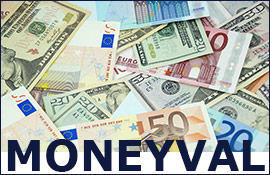In a report published today, the Council of Europe’s anti-money laundering body MONEYVAL calls on the Montenegrin authorities to further strengthen measures to combat money laundering and the financing of terrorism. Since 2015, when MONEYVAL last provided a comprehensive evaluation of Montenegro, the country has taken a number of actions to strengthen its legal and institutional framework to tackle money laundering and the financing of terrorism (AML/CFT).
The report assesses the country’s level of compliance with the AML/CFT standards set by the Financial Action Task Force (FATF). MONEYVAL has found that in relation to the 11 areas under assessment (i.e. Immediate Outcomes), Montenegro obtained a substantial level of effectiveness in two areas, i.e. in understanding money laundering (ML) and terrorist financing (TF) risks, as well as in international co-operation where the authorities are commended for their efficient and effective cooperation with respect to both evidence and intelligence exchanges.
In the other nine areas Montenegro was considered to have moderate levels of effectiveness, where major improvements are required.
Regarding ML/TF risks, the report finds that authorities in Montenegro have a reasonable understanding of ML risks, with key authorities able to articulate clear views on TF threats. MONEYVAL recommends enhancing the understanding of specific money-laundering threats related to cash usage and informal economy, high-level corruption, misuse of legal entities, as well as the potential terrorism-financing risks in the banking sector, money/value transfer services, non-profit organisations, cross-border cash movements, and new technologies. Additionally, vulnerabilities within important financial and non-financial sectors should be better understood and addressed.
The number of investigations, prosecutions and convictions of money laundering cases is low, and only to a limited extent consistent to the country’s risk profile. MONEYVAL recommends to the authorities pursuing more effectively stand-alone and third-party money laundering, money laundering from foreign proceeds of crime, and putting an increased focus on money laundering associated with high-risk crimes (such as drug trafficking, high-level corruption, organised crime, and misuse of legal entities). MONEYVAL also calls for more effective, proportionate, and dissuasive criminal sanctions.
Montenegro has made it its policy objective to deprive criminals of their profits and achieved encouraging results, MONEYVAL says. It urges the country to make consistent use of financial investigations to trace and confiscate criminal proceeds, focusing on high-risk crimes, organised crime and assets moved abroad. Also, more robust controls on cross-border movements of cash are needed.
Montenegro employs an intelligence-based approach to counter terrorism and TF, coupled with a coordinated operational response. The legal framework foresees the automatic implementation of UN targeted financial sanctions related to TF and proliferation financing, although presenting major technical deficiencies, mostly impacting smaller financial institutions and non-financial business. MONEYVAL calls for further capacity building on TF-related financial investigations, synchronization of authorities' CFT operational goals, and the implementation of risk-based mitigation measures for the non-profit sector following the conclusion of the relevant risk assessment.
The banking sector, other important financial institutions (namely money and value transfer services) and accountants, showed a good understanding of ML risks and implementation of preventive measures. The non-financial sector, however, requires significant improvements in ML risk understanding and preventive measures. The knowledge on TF risks was limited across all sectors and needs to be improved.
MONEYVAL found that licensing frameworks are solid for most financial sectors. Market entry requirements and procedures are needed for sectors like virtual asset service providers, real estate agents, company service providers, dealers in precious metals and stones, and accountancy and legal firms. A more robust framework for the licensing of casinos was also recommended.
Supervision by the Central Bank is commendable for banks and other financial institutions, but needs to be strengthened in other cases, especially for high-risk non-financial sectors, notably casinos, lawyers, notaries and providers of company services. The enforcement regime requires major enhancements, particularly by addressing the bureaucratic process for imposition of misdemeanor fines and the short prescription periods.
Specific recommendations were issued to ensure the availability of accurate and up-to-date beneficial ownership information for Montenegrin legal entities.
Montenegro is expected to report back to MONEYVAL in December 2025 as part of its enhanced follow-up reporting process.
* * *
The Committee of Experts on the Evaluation of Anti-Money Laundering Measures and the Financing of Terrorism (MONEYVAL) is a monitoring body of the Council of Europe entrusted with the task of assessing compliance with the principal international standards to counter money laundering, the financing of terrorism and the financing of proliferation of weapons of mass destruction, as well as the effectiveness of their implementation. MONEYVAL evaluates 33 States and territories and makes recommendations to national authorities in respect of necessary improvements to their anti-money laundering and counter terrorist financing systems and to counter proliferation financing.
MONEYVAL and Montenegro
Press Contact
Tatiana Baeva, Spokesperson/Media officer, Tel. +33 3 88 41 21 41
Council of Europe, Media Assistance Unit
Tel. +33 (0)3 88 41 25 60 - www.coe.int - pressunit@coe.int




